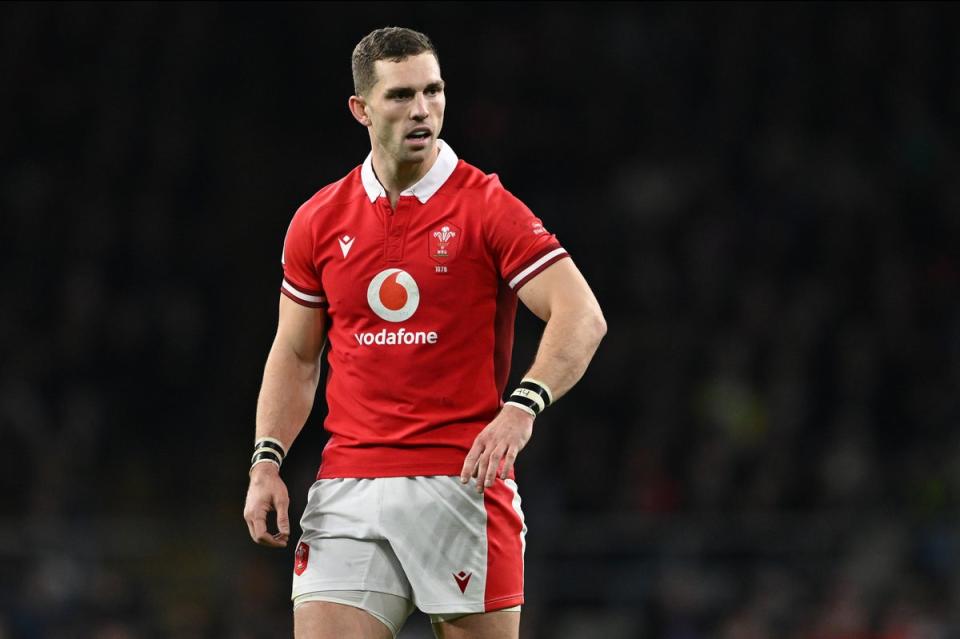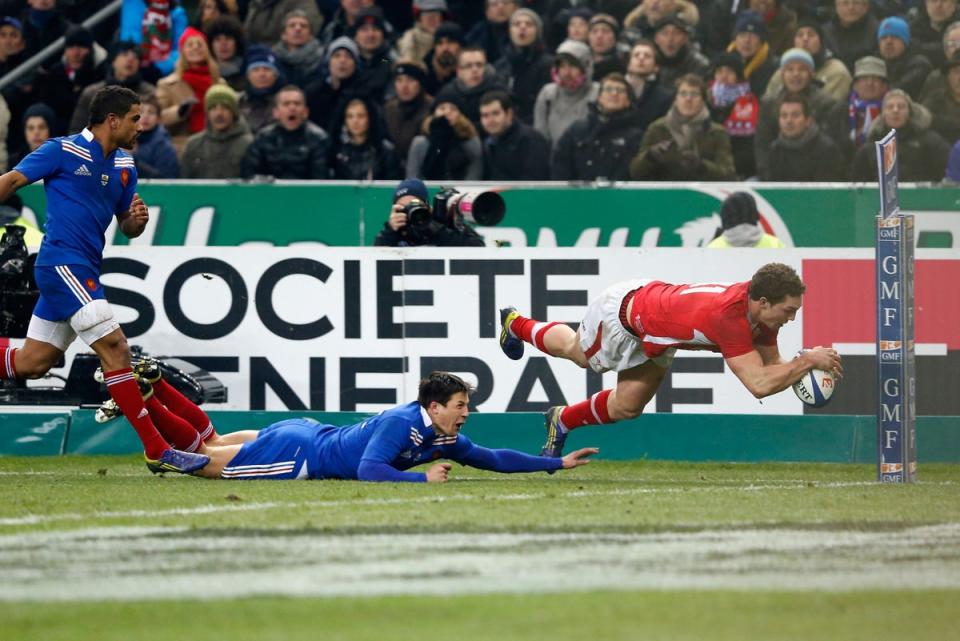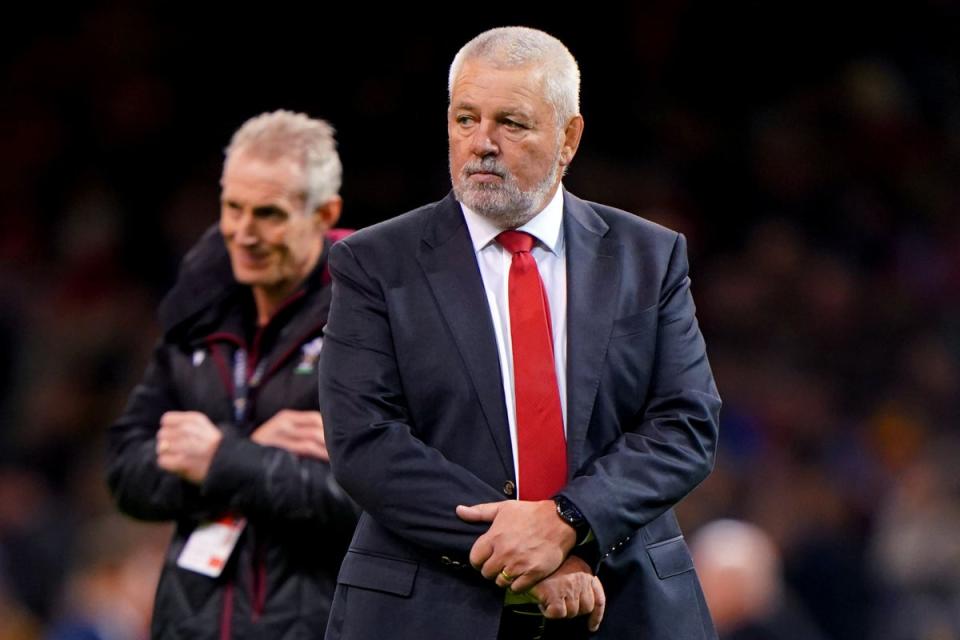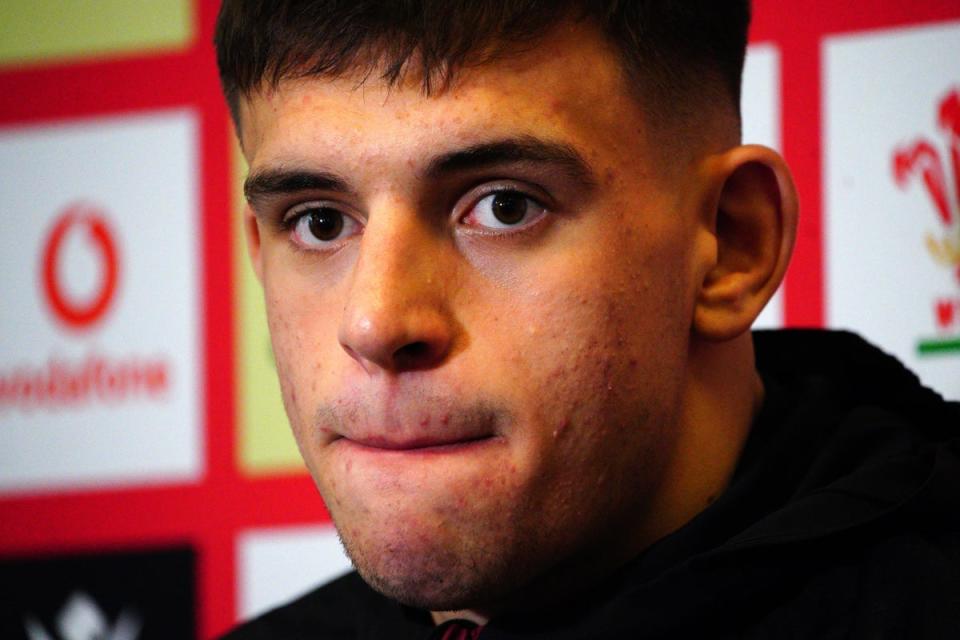George North’s shock retirement reminds Wales exactly how far they’ve fallen

The year was 2013 and Wales required something significant. Warren Gatland’s side had begun the championship chasing back-to-back Six Nations crowns; an opening home defeat to Ireland meant their hopes had already taken a hit. In round two, Wales travelled to Paris with their tournament at a pivot point – they had not won in France since 2005, and any hopes of mounting a title challenge would be over if that run continued.
Nine minutes to play, the scoreboard locked at six apiece. It had been tight, it had been tense; Frederic Michalak striking twice from the tee, Leigh Halfpenny providing his own accurate answers. It was time for a hero; George North stepped up.
Dan Biggar’s chip looked aimless, France numbered up on the outside with Francois Trinh-Duc sweeping across the backfield. But Biggar’s pitch checked nicely on the soft Stade de France surface – North had a glimmer.

It was little more than that. Trinh-Duc arrived at pace as North glided into his gather, taken man and ball little more than a metre from the touchline. The replacement fly half’s technique looked good, feet pumping, waist targeted, arms wrapped, North’s boots flying out towards touch – but North, just about, got it down.
Onwards Wales went to a second successive title, England dispatched on the final weekend by a record winning margin to seal an unlikely triumph. Gatland’s giants had done it again, re-asserting their place at the top of the northern hemisphere pecking order.
11 years on, a first Six Nations wooden spoon since 2003 beckons as North prepares to bid farewell. Wales must beat Italy on Saturday to have a hope of avoiding the ignominy of a bottom-placed championship finish, and even a win may not be enough. How the mighty have fallen.
North, who will retire from international rugby at the end of the season as he prepares to move to Provence, is the latest, and perhaps last, of that 2013 group of gods to step away. Welsh rugby has had a great many deities but perhaps never a golden generation quite like that.
Sam Warbuton went early, injuries taking their toll, and Jamie Roberts crashed out in 2017. Justin Tipuric and Alun Wyn Jones clung on for the last World Cup cycle only to be dumped last summer; Jonathan Davies is still trucking domestically but surely beyond a recall now. Deadeye Halfpenny and Biggar made it to the autumn’s tournament but not beyond, while Ken Owens may not return from the back injury that scuppered his chances.

Taulupe Faletau may yet continue his Test swansong in the summer but this feels like the end of an era. North represents the last of the immortals, a wing of extraordinary strength, speed and skill latterly reinvented as a midfield glue man of high quality. He sits comfortably as the most experienced player in a callow Welsh side named to take on the Azzuri, his 120 caps more than double the next-highest tally among his squadmates.
“It’s not completely a surprise to me because we’d already had a couple of conversations," said Gatland of the 31-year-old’s retirement decision. "He was talking about when was the right time to retire. He has been playing international rugby since he was 18 and he has been going for a long time.
"We would have loved for him to still be involved, but the conversation with him was he didn’t want to continue playing for the next couple of years and then potentially leave us in a bit of a hole 12 months out from a World Cup. It means there will be another opportunity for someone else to come through."
Wales’ youth movement continues apace with successors to North beginning to emerge. Joe Roberts’ showing against France last week was one of promise, while Mason Grady is made in a similarly muscular mould. They will join the likes of Dafydd Jenkins, Sam Costelow and Cameron Winnett in trying to take the team forward – but there is surely pain to come first.

While inconceivable a decade ago, a wooden spoon may be an accurate reflection of where Wales are. Familiar stories of infighting have reared their ugly head during this tournament with Gatland and coaches at the four United Rugby Championship sides trading digs at one another, while the struggles domestically look set to be exacerbated next season with more talent draining away. Gatland strongly hinted this week that North would have remained in Wales had an offer been put on the table; that one was not is evidence of where the Welsh union is financially.
Tomos Williams and Gareth Anscombe, perhaps still Wales’ best pair of half-backs, will steer Gloucester around next season rather than an outfit across the Severn, which may be positive for their games but not Gatland’s attempts to build cohesion and continuity. Dafydd Jenkins, who has impressed as a tireless captain through the tough times in this tournament, was forced to make a first professional appearance at flanker last week with Wales lacking back row size and strength. Six props have made their debuts since last August – Scarlets tighthead Harri O’Connor is the latest this weekend – and hooker Evan Lloyd has made his Test debut before his first senior start.
It is a catalogue of concerns that will take their toll on a young group, though there is clearly promise too. Wales have shown throughout this campaign that the raw tools are there to construct something of substance. A win over Italy may create a foothold from which they can properly start to climb. But equally, it would be no surprise at all if the Azzurri replicate the magic of two years ago, secure a win and open up a gaping chasm between fifth and sixth in this year’s competition.
Gatland has preached patience to a receptive supporting choir that recognises the problems at play in the background. But North’s departure is a reminder of the heady heights to which Wales once soared – it is surely not good enough to simply accept a wooden spoon with a shrug.

 Yahoo Sports
Yahoo Sports 
